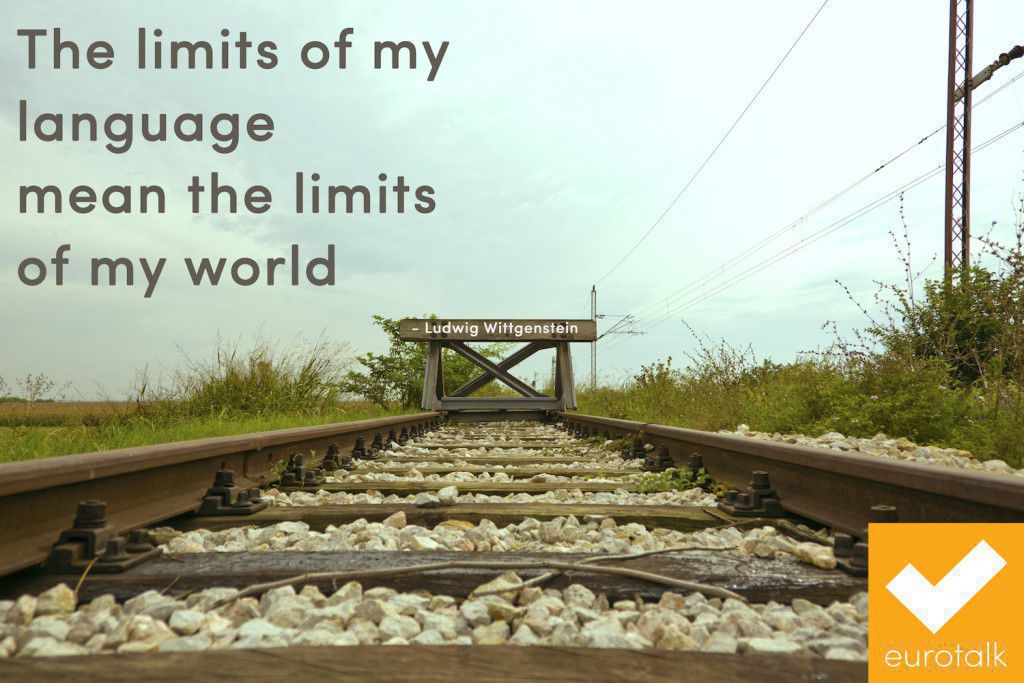Quote of the week: 27 Jun 2015
“The limits of my language mean the limits of my world.” Ludwig Wittgenstein
Way, Haul Away… Sea shanties and language learning
Last weekend, I spent a very merry, slightly tipsy few days at the International Sea Shanty Festival in Falmouth.
International What, now? Allow me to explain.
 Every year, Falmouth town hosts a three-day festival of nautical songs and chants, to which people flock not only from all over Cornwall, but from foreign parts too – Ireland, Brittany, England, even America. Every B&B, campsite and hotel is full to the brim with shantymen (and, increasingly, some shantywomen!), and the streets swarm with be-smocked musicians and the occasional pirate. Nearly every pub (of which Falmouth has a very generous range) becomes a venue for the various shanty bands, who also play on street corners, outside shops and in the public squares.
Every year, Falmouth town hosts a three-day festival of nautical songs and chants, to which people flock not only from all over Cornwall, but from foreign parts too – Ireland, Brittany, England, even America. Every B&B, campsite and hotel is full to the brim with shantymen (and, increasingly, some shantywomen!), and the streets swarm with be-smocked musicians and the occasional pirate. Nearly every pub (of which Falmouth has a very generous range) becomes a venue for the various shanty bands, who also play on street corners, outside shops and in the public squares.
Each hour, a venue’s lineup changes, and you’ll see canvas smocks in Breton red, navy blue and stripes scurrying from one establishment to another as they get ready to set up for their next gig. Every year, I make elaborate plans to switch venue every hour to see all the bands I want to see, but inevitably the beer in one pub ends up being unusually good, and a seat becomes vacant, and 7 hours later you find that somehow you’re still in the same venue and 7 different bands have floated on and off stage before your eyes, whilst old-timers have come and shared your table and had a natter about… well, everything under the sun. Which is all very much in the spirit of the festival.
So what is a shanty?
Most people think the name ‘shanty’ comes from the French ‘chanter’ (to sing). Although there’s some debate about this, what’s definite is that a shanty is a traditional form of song sung by sailors, which aims to reflect the rhythm of the work on deck (hauling halyards, pulling the anchor, setting jibs, winding a capstain). Often, a lead shantyman will give the ‘call’ and then the other crew will give the ‘response’ (short, sharp calls and responses for the jobs requiring bursts of energy; longer, more lyrical ones for the slower jobs). Working shanties often feature the nature of the work itself as the main theme – ‘Haul Away Joe’, ‘Wey, hey, blow the man down!’ – but for those lonely evenings or periods of comparative calm, there are the wistful shanties which recall the shore and all its comforts – ‘Spanish Ladies’, ‘Maggie May’ – and remind the young sailors of their sweethearts left behind (often including a not-so-veiled warning about what said sweethearts are most likely getting up to with other boys whilst their sailors are at sea).
Who sings shanties nowadays?
There are plenty of shanty bands around the country – and the world. This weekend alone, I saw bands from Falmouth, Treverva, Salisbury (not a lot of sea in Salisbury, but there you go), Brittany, Exmouth, Holland, Poland, Yorkshire, and plenty more places. Some are professional groups with regular gigs of their own, whilst others are more casual affairs – people who just love to shant!
What’s all this got to do with language?
I’m glad you asked. The thing is that although shanties get sung in all sorts of languages and dialects, you never, ever feel left out by not understanding the words. Turn up to one of the Breton bands and (unless you speak Breton or Cornish), you probably won’t have a clue what the words mean, but you’ll definitely understand the spirit of it, and before long you’ll find yourself singing along to the chorus, arm in arm with everyone else. In part, this is because shanties are very repetitive by nature, so it’s easy to pick up on lyrics and sing along.
All of which makes me think that singing has got to be a great way to pick up a new language – and any type of song will do! Nursery rhymes, pop songs, national anthems, folk songs, poems, choral music, raps; it all helps, it really does. I still remember all the Zulu words to ‘Siyahamba’, which Safia and I learned over just a few days (video evidence below). And even if you don’t know exactly what all the words mean to begin with, it’s a huge encouragement to be able to fluently reel off a couple of sentences in your new language, all learned through song.
…Way, Haul Away,
We’ll Haul Away, Joe!
Nat
5 reasons NOT to learn a language
Yes, you did read that correctly. We’re always telling you why learning a language is one of the best things you can do – so today, we’re examining a few of the main reasons why people choose not to do it. How many of these do you recognise?
1. I’m not good at languages
We’ve all said this at some point. What it really means is ‘I didn’t do well at languages at school, so I must be bad at them.’ (Remember that time in Spanish class when you accidentally said you were pregnant when you meant embarrassed, and everyone laughed? Nightmare.)
But we all learn differently and at school, we were only taught one way. So maybe it’s just that you haven’t found the right way for you yet…
2. I can’t afford it
Learning a language doesn’t need to cost a fortune. You could read newspapers online in the language you’re learning. Or find a friend to chat to, either in person or via Skype. If you’re a creative type, make yourself some flashcards and use them to practise your vocabulary.
For more tips, visit Alex’s article on learning a language on a budget. And check out our special offer at the end of this email…
3. I don’t need to learn a language
This is one that’s often heard among English speakers: ‘But everyone speaks English!’ (Apparently 33% of Brits think speaking English with a foreign accent is the answer. It really isn’t.)
And while it might be true that a lot of people now speak English, that doesn’t mean we should stop making the effort. By knowing just a few words like hello and thank you, we show respect and probably end up having a better experience as a result.
4. I haven’t got time
We all lead busy lives, and it can be hard to find time to do everything we want to do. But learning a language doesn’t have to mean studying for hours on end. Break it up into small, manageable tasks and fit it around your daily life – on the bus to work, for instance, or waiting for a meeting to start. You may be surprised how much time you actually have.
For more advice, check out our blog post on making time to learn a language.
5. I’m too old to learn a language
You’re never too old. It may be true that children’s brains are better suited to picking up new languages, but it doesn’t necessarily follow that adults can’t do it. Just look at Benny Lewis, who hated languages at school and now speaks seven fluently. If he can do it, why not the rest of us?
So let’s stop making excuses and start learning a language now; in a year’s time we’ll be glad we did…
The emotional journey of a language learner
So. You’ve decided you want to speak another language. But as we all know, learning and knowing are two very different things, so brace yourself for the bumpy road ahead…
1. The optimistic early days
Hurrah! You’re going to learn a language, and it’s going to be easy, and fun, and you’re going to be fluent before you know it. Bring it on!
2. The study hours
So, with great enthusiasm, you buy books, download apps, spend days learning verb endings…
3. The reality check
Oh. Turns out this might not be as easy as you thought.
4. The tough days
Sometimes it’ll feel like nothing’s sinking in…
5. The lazy days
The sun’s out. Who wants to sit around studying? Let’s go to the beach!
6. The doubts
What if you make a mistake and embarrass yourself?
7. The panic
Or join in a conversation and then don’t understand a word?
8. The despair
You may even feel like giving up altogether.
But don’t – because it’s about to get good!
9. The first successful conversation
When you ask someone for an ice cream – and actually get what you asked for. The right flavour and everything…
10. The quiet satisfaction
When you impress people by telling them you speak another language.
11. That smug feeling
When you see a tourist struggling, and you can be the mysterious stranger who steps in and helps them out.
12. The sense of achievement
When you talk to someone in their language and they don’t immediately realise you’re from a different country.
And let’s not forget…
13. The new places you can discover
14. The new friends you’ll make
15. It even makes you smarter.
So what are you waiting for?
How do you learn a language? (Win an iPad mini!)
The survey and giveaway have now closed. Thank you to everyone who took part!
 Language learners! We need your help. We want to know the different method(s) that you use whilst learning a language to accomplish your goals. This will enable us to improve and adapt to what you want.
Language learners! We need your help. We want to know the different method(s) that you use whilst learning a language to accomplish your goals. This will enable us to improve and adapt to what you want.
The survey only takes approximately five minutes depending on how much you want to tell us (we are hoping lots). To say thank you for taking up your precious time, we’ll enter you into a prize draw to win an iPad mini, pre-installed with our app, uTalk, in the language of your choice. There are several different ways to enter, the more you do the greater your chance of winning the iPad mini.
Thanks for your time 🙂
And please share the link with friends and colleagues too – thank you!
The giveaway ends at midnight on June 17th 2015 (UK time), and is open worldwide to anyone aged 18 or older. The winner will be selected at random and notified by EuroTalk within 48 hours of the closing date.



